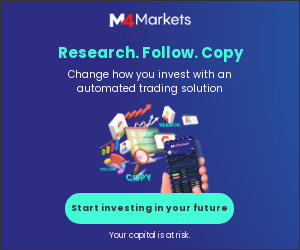U.S. President Donald Trump met with Ukrainian President Volodymyr Zelensky on Friday, during which Trump made remarks suggesting Zelensky could be “gambling with World War 3.” Such comments, tied to high-level diplomatic discussions, have drawn attention to their potential influence on financial markets. While markets often respond to geopolitical developments, especially those involving major powers, the broader implications of this meeting and its rhetoric remain to be seen. Investors are likely watching closely for any signals of market movement stemming from global uncertainty.
Table of Contents
ToggleThe Oval Office Tensions Explained
The key meeting between President Donald Trump and President Volodymyr Zelenskyy took a confrontational turn. President Trump accused Zelenskyy of “gambling with World War Three,” amplifying tensions during their diplomatic exchange. Zelenskyy, seeking U.S. support for a ceasefire and a mineral partnership, faced criticism from both Trump and Vice President JD Vance for his perceived lack of gratitude toward U.S. aid. The meeting’s final minutes escalated into an open disagreement, with Trump questioning Ukraine’s negotiation approach while calling the conflict “great television.”
Diplomatic Fallout and Unresolved Issues
What was meant to foster cooperation ended in a cancelled press conference and abandoned diplomatic lunch. Trump’s remarks suggested dissatisfaction with Zelenskyy’s stance on peace negotiations, particularly regarding Russia. Zelenskyy, defending Ukraine’s sovereignty, urged Trump not to compromise with Vladimir Putin, drawing further rebuke. The abrupt conclusion left ongoing initiatives, such as the potential mineral agreement, in limbo. Amid this rift, Zelenskyy expressed gratitude toward the American people but lamented the diplomatic strain.
Trump Comments and Implications for Global Support
The clash sparked international reactions, with European leaders rallying publicly behind Zelenskyy. Their solidarity underscores Ukraine’s fragile position in receiving global support during its conflict with Russia. Meanwhile, Trump’s statements reflected a prioritization of brokering peace, albeit on U.S. terms. With speculation about potential shifts in U.S. military assistance, concerns grow over how Ukraine can sustain its defense strategy. The fallout from the meeting highlights vulnerabilities in global alliances crucial to maintaining a unified response against Russian aggression.
Market Outlook Amid Geopolitical Tensions
Forex Market Analysis
Geopolitical tensions like the recent remarks from President Trump can lead to volatility in the forex market. Safe-haven currencies such as the Swiss franc and Japanese yen might see increased demand as investors seek stability during uncertainty. The U.S. dollar could experience mixed movements, strengthening in the short term due to its safe-haven status but potentially facing pressure if prolonged uncertainty undermines confidence in U.S. leadership. Emerging market currencies, especially those with ties to Ukraine or Russia, may weaken as risks linked to the region escalate.
Stock Market Impact
Equity markets often react sensitively to heightened geopolitical concerns, with risk-off sentiment likely influencing trading behavior. Sectors like defense and cybersecurity may see gains as investors anticipate increased spending in response to global instability. However, broader indices such as the S&P 500 or NASDAQ could face downward pressure if the rhetoric escalates into broader tensions. European equities, particularly in economies with direct exposure to Ukraine, may also see sharper declines as regional impacts ripple through supply chains and investor sentiment.
Cryptocurrency Movements
Cryptocurrencies like Bitcoin and Ethereum can serve as both risk-on and safe-haven assets, depending on investor behavior. Bitcoin, often perceived as “digital gold,” could see increased interest if traditional markets waver. However, its correlation to equities during times of market stress might temper any sustained rally. Additionally, altcoins with less liquidity could experience higher volatility, as investors might focus their capital on leading cryptocurrencies amid uncertainty.
Commodities and Gold Outlook
Gold, historically a go-to asset during geopolitical stress, may experience a surge in prices as investors flock to safety. The metal frequently benefits when confidence in fiat currencies wavers or global risks heighten. Conversely, oil prices might show volatility given Russia’s significant role as a major producer. Disruptions tied to prolonged tensions could contribute to supply concerns, spiking crude prices. Industrial metals with connections to Ukrainian exports, such as steel or iron, may also see price instability depending on how events unfold.
Investor Considerations
Markets will closely monitor any follow-up actions or escalatory language from involved parties. While short-term volatility can present trading opportunities, sustained tensions could lead to extended risk-aversion, cautioning long-term investors. Diversification into safer asset classes such as gold or treasury bonds could provide a hedge, while exposure to high-risk equities or emerging market assets may warrant reassessment. With geopolitical factors heavily influencing market sentiment, prudent positioning and close monitoring will be key to navigating these uncertainties.
Conclusion
Geopolitical developments like President Trump’s recent statement can have far-reaching effects across financial markets. The forex market may see heightened volatility, with safe-haven currencies strengthening while emerging markets face pressure. Stocks could experience sector-specific gains in defense but broader index declines amid risk-off sentiment. Cryptocurrencies might attract attention as alternative assets, while gold is likely to benefit as a traditional safe-haven. Investors should remain vigilant, monitoring geopolitical progress and its potential impact on market behavior. A diversified and balanced portfolio, complemented by consistent re-evaluation of risks, will be essential for navigating these uncertain times while capitalizing on potential opportunities.


















